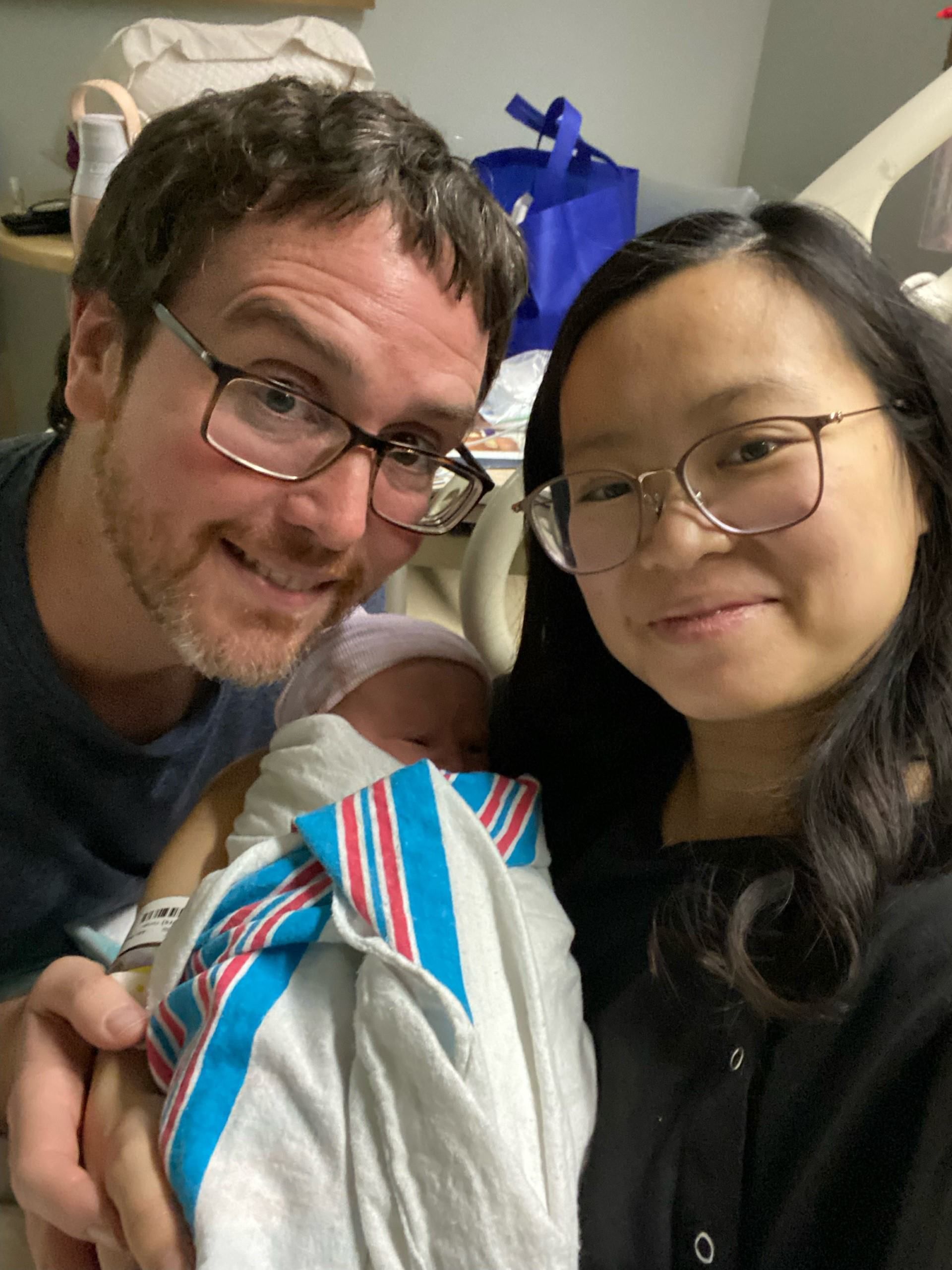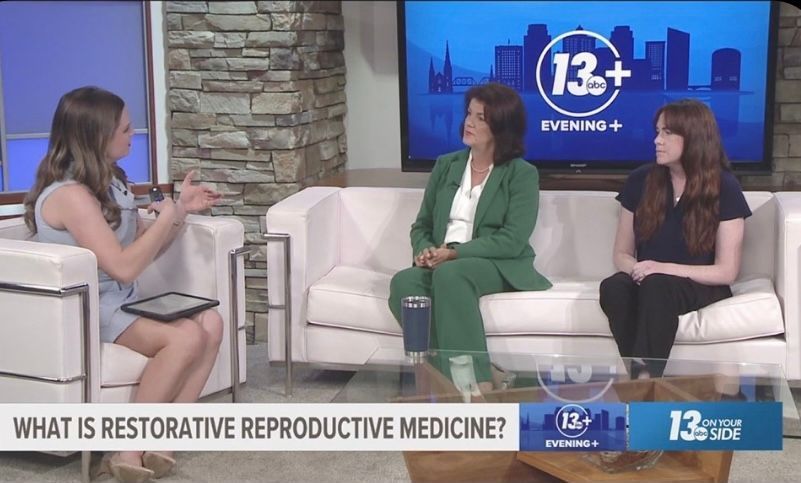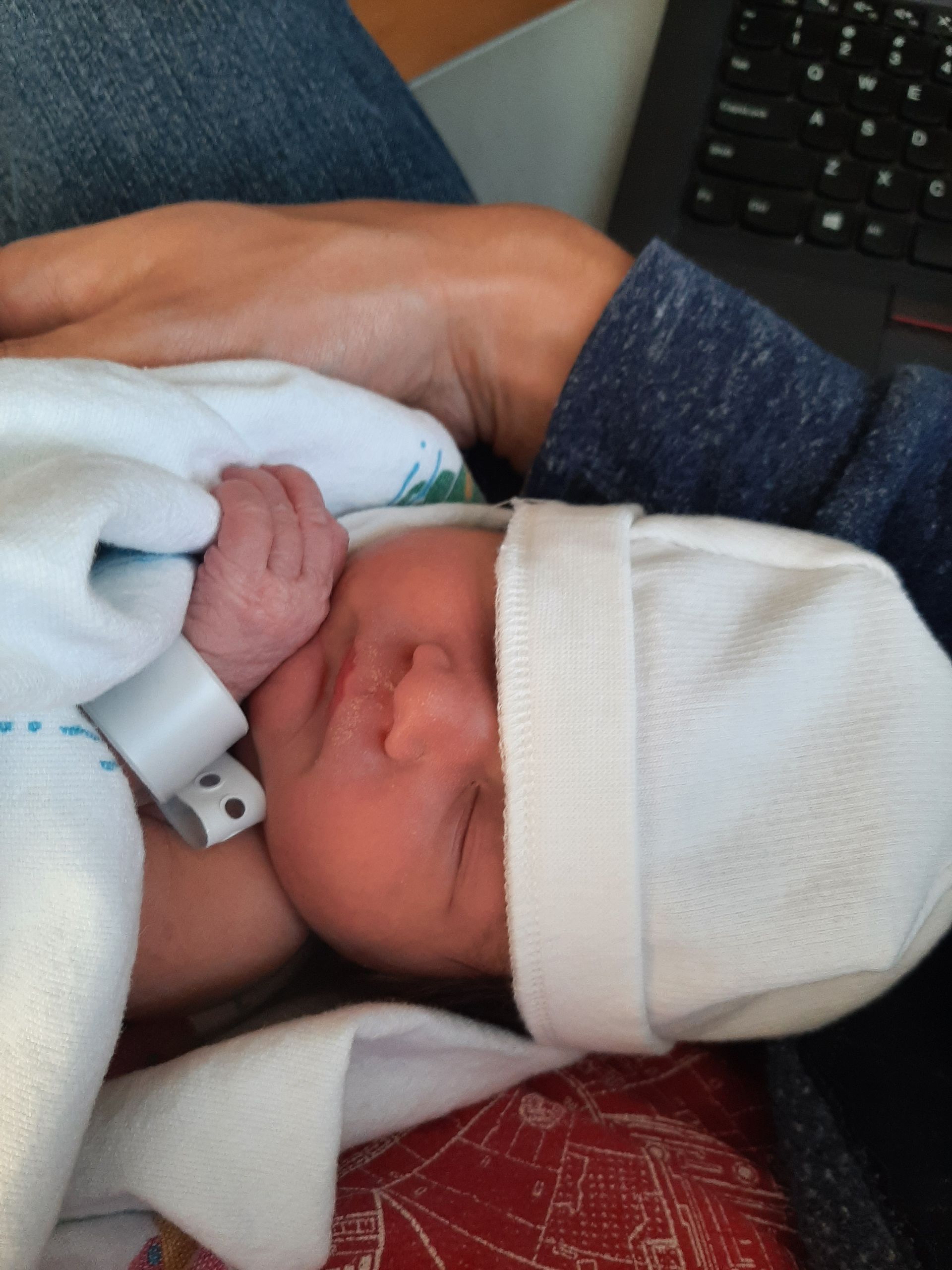Preeclampsia was a term I had frequently heard, but didn’t fully understand, until it affected our family. I had given birth to four children of my own, including twins following a high-risk pregnancy, but it wasn’t until I become a grandmother this spring that I learned exactly what preeclampsia is. May is Preeclampsia Awareness Month—please share this important information!
What is preeclampsia?
Preeclampsia is a complication of pregnancy characterized by elevated blood pressure (hypertension) and protein in the urine (proteinuria). It typically occurs after 20 weeks of pregnancy, but it can develop throughout gestation and even during the postpartum period. In many cases there are no symptoms, but it can often be detected during routine prenatal appointments.
Although studies have shown that certain risk factors may contribute to a higher likelihood of developing preeclampsia, the exact cause is not yet understood. And, the National Preeclampsia Foundation reminds us that the condition can affect any woman and any pregnancy.
Experts believe preeclampsia may be caused by problems with the early development of a pregnant woman’s placenta, the organ that supplies oxygen and nourishment to the baby during pregnancy. During the early stages of pregnancy, new blood vessels begin to form as the placenta attaches itself to the mother’s uterus. These new blood vessels may develop abnormally for several different reasons, including:
inadequate blood flow to the uterus
blood vessel damage
immune system problems
genetic factors
These abnormal blood vessels restrict the amount of blood that can flow to the placenta. If the placenta does not receiving enough blood flow, substances are released into the blood stream that can cause a mother’s blood pressure to increase.
If left untreated, preeclampsia can be life-threatening to both the mother and her baby. Because it involves problems with the placenta, the only real “cure” for a mother with preeclampsia is delivering her baby.
Why is it important to know if I have preeclampsia?
Preeclampsia is fairly common, affecting up to 8% of women during pregnancy. It is usually mild and normally has very little effect. However, it’s important to know if you have the condition because, in a small number of cases, it can develop into a more serious illness called Eclampsia, that can be life-threatening for both mother and baby..
What are the possible complications of preeclampsia?
Preeclampsia affects the development of the placenta, which may prevent your baby from growing as it should. There may also be less fluid around your baby in the womb. If the placenta is severely affected, your baby may become very ill. In the most severe cases, the baby may even fail to survive in the womb. Consistent monitoring works to identify those babies who are most at risk. A woman is more likely to have complications if she develops preeclampsia early in her pregnancy, and has noticeable symptoms. In some cases, doctors must perform induced labor and delivery or a caesarean section (C-section) to remove the baby. This will stop preeclampsia from progressing. If left untreated, complications may develop. If the condition continues to worsen, certain signs and symptoms known as “severe features” will develop. Some severe features and complications of preeclampsia include:
- HELLP syndrome: causes hemolysis (loss of red blood cells), elevated liver enzymes, and low blood platelet count, resulting in organ damage
- Very high blood pressure: can lead to hemorrhagic stroke (bleeding in the mother’s brain) if the level is very high
- Eclampsia: A very serious condition causing seizures and possibly coma or death to mother and baby
- Placental abruption: the separation of the placenta from the uterus wall, which can cause severe bleeding and damage to the placenta and be potentially life-threatening to both mother and baby
- A lack of oxygen to the placenta: can cause slow growth, low birth weight, or preterm (early) birth of the baby
Women who develop preeclampsia face an increased risk of heart and blood vessel disease. Their risk of preeclampsia in future pregnancies also increases.
What symptoms should I look for?
Symptoms typically occur later in pregnancy but can also occur for the first time after birth. If you experience any of the following symptoms during pregnancy or after delivery, you should call your doctor or midwife right away. Having symptoms doesn’t necessarily mean you have preeclampsia, but they may be cause for concern and require medical evaluation.
Some symptoms of preeclampsia include:
- Weight gain of more than five pounds in a week
- Headache that won’t go away, even after taking medication
- Changes in vision like seeing spots or flashing lights; partial or total loss of eyesight
- Nausea or throwing up, especially suddenly, after 20 weeks (not the morning sickness that many women experience in early pregnancy)
- Upper right belly pain, sometimes mistaken for indigestion or the flu
- Heartburn that doesn’t go away with simple antacids
- Difficulty breathing; gasping or panting
- Muscle spasms or Hyperreflexia (overactive reflexes)
- Swelling of the hands, face, and around the eyes sometimes occurs in preeclampsia, but it can also happen in normal pregnancy. It is good to discuss any noticeable changes in swelling with your doctor. (Swelling of the feet and ankles is more common in late pregnancy and probably not a sign of preeclampsia)
It’s also important to note that some women with preeclampsia have NO symptoms or they “just don’t feel right.” If you have a sense that something’s wrong, even without symptoms, trust your instincts and contact your healthcare provider.
In cases of preeclampsia with severe features, other organs — such as the liver or kidneys — can sometimes become affected. There can also be problems with blood clotting. Though rare, preeclampsia may also progress to convulsions or seizures before or just after the baby’s birth.
Who is most at risk for developing preeclampsia?
Preeclampsia can occur in any pregnancy but you are at higher risk if:
- your blood pressure was high before you became pregnant
- your blood pressure was high in a previous pregnancy
- you have an existing medical problem such as kidney disease or diabetes or a condition that affects the immune system, such as lupus.
The importance of other factors is less defined, but some studies have shown you may be more likely to develop preeclampsia if more than one of the following applies:
- this is your first pregnancy
- you are over the age of 40
- your last pregnancy was more than 10 years ago
- you are very overweight – a BMI (body mass index) of 35 or more
- your mother or sister had pre-eclampsia during pregnancy
- you are carrying multiples
How is preeclampsia monitored?
Throughout your pregnancy, your healthcare provider will closely monitor you and your baby for signs of preeclampsia and you may have ultrasound scans to measure your baby’s growth and wellbeing. At each prenatal visit, your weight, blood pressure and baby’s heart rate will be monitored. If your blood pressure is high, a urine test will be done to check for the presence of protein. This may be done on an outpatient basis if you have mild preeclampsia. You may be advised to have your baby at about 37 weeks of pregnancy, or earlier if there are concerns about you or your baby.
What happens after my baby is born?
Preeclampsia usually goes away after birth. However, in severe cases complications may still occur following birth. You may need to continue taking medication to lower your blood pressure and you may need to continue monitoring of your blood pressure. The medication should not affect your ability to breastfeed. If you are still on medication to treat your blood pressure 6 weeks following birth, or there is still protein in your urine on testing, you may be referred to a specialist.
Will I get preeclampsia in my next pregnancy?
Overall, one in six women who have had preeclampsia will get it again in a future pregnancy.
Your practitioner can discuss with you your personal risk of getting preeclampsia in the future.
Are there any lasting effects of preeclampsia?
Women who have had preeclampsia have an increased risk of developing future problems such as high blood pressure, heart disease, stroke and possibly diabetes.
While it is still unknown whether the risk is caused by preeclampsia or if the woman was already predisposed, these increased risks may first emerge in the years following a complicated pregnancy.
Simple steps you can take to lower your risk for heart disease include:
- Maintaining a healthy weight
- Don’t smoke
- Know and maintain healthy blood pressure, blood sugar and cholesterol levels.
- Exercise regularly and eat a healthy diet
- Regular check ups with your primary care physician to monitor your heart health
Lastly, research suggests that women who have experienced a traumatic pregnancy, with complications such as preeclampsia, are at an increased risk for postpartum depression and anxiety. Always share any concerns with your clinical team.
In our case, we were fortunate that my daughter-in-law’s preeclampsia developed very late in pregnancy – at 40 weeks. This meant that premature birth and development of the baby was not at issue. Physicians recognized immediately her elevated blood pressure and proteinuria, and moved quickly to begin labor and delivery–so quickly, in fact, that we really didn’t have much time to learn about this newly diagnosed condition and what to expect as a result. There were scary moments as she moved through labor and we watched her blood pressure spike to very dangerous levels as doctors tried to manage her symptoms and provide as “normal” a birth experience as possible. In the end, a C-section was necessary, as was the use of magnesium sulfate to minimize her risk of seizures. The immediate side effects were nausea, difficulty breathing, and extreme confusion. Certainly not how she had hoped to begin her life as a new mom. I am happy to report however that now, after 5 weeks, her blood pressure has returned to normal and any lasting side effects have disappeared.
We feel lucky to have a healthy mom and a healthy baby (who, by the way, is unprecedentedly spectacular – sorry, grandma moment)! But in hindsight, I wish we’d all known more going into this. For the benefit of others, please find references below.
References
RCOG guideline The Management of Severe Pre-eclampsia/Eclampsia (March 2006 and reviewed in January 2009) and the NICE guidance The Management of Hypertensive Disorders during Pregnancy (August 2010). https://www.nice.org.uk/cg107.
Preeclampsia and High Blood Pressure During Pregnancy (September 2014) https://www.acog.org/Patients/FAQs/Preeclampsia-and-High-Blood-Pressure-During-Pregnancy
https://www.emedicinehealth.com/preeclampsia/article_em.htm
https://www.healthline.com/health/pregnancy/preeclampsia-magnesium-sulfate-therapy#overview1
–Barri Burch is a healthcare marketing consultant and frequent contributor to the Reply Blog.











